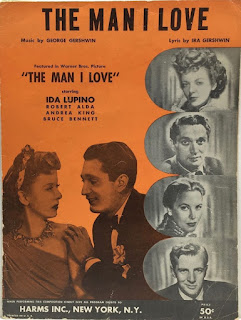 A man brags that he has ten thousand dollars in cash with him; the next day he is found murdered. That same day, new bride Millie Baxter (Kim Hunter) is on the train to New York City to meet her groom, Paul Baxter (Dean Jagger). A traveling salesman, Paul left almost immediately after the wedding; the couple married having only known each other for four days. Millie is about to find out what happens When Strangers Marry (1944).
A man brags that he has ten thousand dollars in cash with him; the next day he is found murdered. That same day, new bride Millie Baxter (Kim Hunter) is on the train to New York City to meet her groom, Paul Baxter (Dean Jagger). A traveling salesman, Paul left almost immediately after the wedding; the couple married having only known each other for four days. Millie is about to find out what happens When Strangers Marry (1944). A suspenseful film that keeps you on guessing throughout, this is a fun way to spend an evening. It's not a perfect film by any means, but it has some redeeming values, not the least of which is the performance of Dean Jagger. It's unusual to see Mr. Jagger as a romantic lead. Often, he is the older, wiser man, but here he is love interest. Casting him threw this audience off balance; we are so used to him in more sinister roles that it was easy to accept that he might be the murderer. Paul Kelly, another actor with a bit of a sinister background (you can learn a bit more about his past in this post), was also considered for the lead (AFI catalog).
Kim Hunter also contributes to the film's success, though one has to shake their head at the character's stupidity. Millie comes across as a traveling salesman groupie. She's already had one unsuccessful relationship with Fred Graham (Robert Mitchum) - it ended, he said because of his job. Yet Millie marries Paul after having been with him for four days in a three month period. This certainly makes Paul all the more suspect, but it also makes Millie appear very, very naive - almost to the point of stupidity. How can she have married someone she barely knows, who then disappears for an extended period of time?
Kim Hunter began her film career in 1943, with a lead role in The Seventh Victim. After several years, she went to New York, where she joined the Actor's Studio, and was cast in the Broadway production of A Streetcar Named Desire as Stella DuBois Kowalski, a role she reprized in the film version. She continued to appear on Broadway on television in the 1950s, despite being blacklisted (Unfriendly Witnesses: Gender, Theater, and Film in the McCarthy Era by Milly S. Barranger). Television would continue to be her main medium until 1968, when she was cast as Zira in Planet of the Apes. She would appear in two more of the franchise's films. She died of a heart attack in 2002 - two years after the death of her husband of 49 years, Robert Emmett - at the age of 79.
This is one of Robert Mitchum's first credited roles. We are, of course, used to Mitchum as the cool leading man. At this point in his career, he is still learning, and it is obvious. Towards the end of the film, he overacts quite a bit. Of course, it may have been that he was truly afraid for his life. The film was produced by Frank, Herman, and Maurice Kozinsky, aka the King Brothers (TCM article). Mitchum agreed to do the film as a one-time thing, but the Brothers were eager to sign him to a contract. According to Kim Hunter, he would be harassed daily by men who Mr. Mitchum claimed had guns. Luckily for him, filming was over in seven days, after which he signed a contract with RKO (Robert Mitchum: "Baby I Don't Care" by Lee Server). Once at RKO, he started to get parts in films like The Locket (1946), Crossfire (1947), and Out of the Past (1947).
William Castle was offered the opportunity to direct the film. The Kings told him that, if he could finish filming in 7 days, he would be given a $1,000 bonus. He asked his cast if they would consent to a rehearsal period of one week (with no pay!). They did, and filming was completed in the one-week period.
.
When the film was reissued in 1949, there was a change in title - it was now Betrayed,
which kinda gives a lot of the plot away. It also had a new star. Mr.
Jagger was now third billed, with Mr. Mitchum dominating the poster
(above).
The film got good reviews on release - James Agee in Time, and Variety both were enthusiastic in their praise. Orson Welles actually talked to William Castle about working together following this film's release.While we didn't love this film, it was certainly a pleasant way to spend an evening - an interesting film noir, good performances, and a chance to see Robert Mitchum learning his trade. What's not to enjoy? We'll leave you with a scene from the film:

















